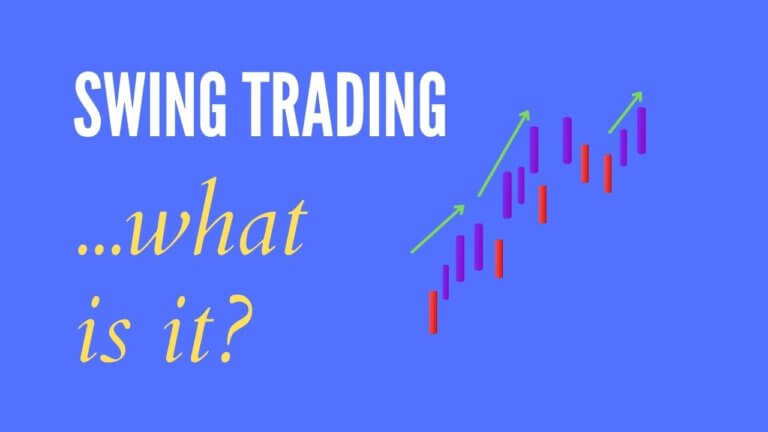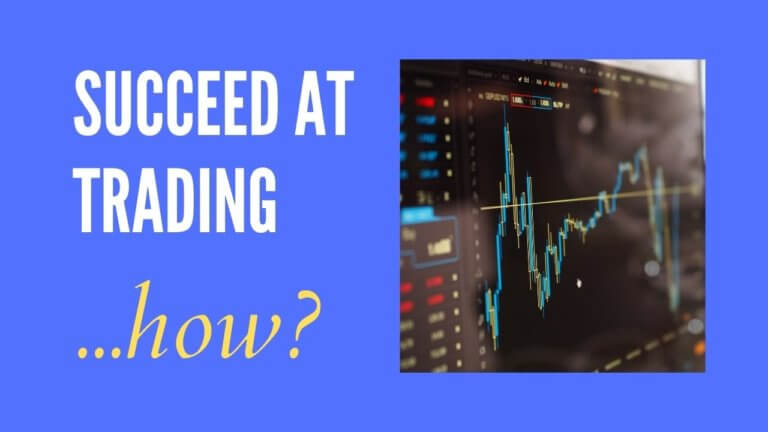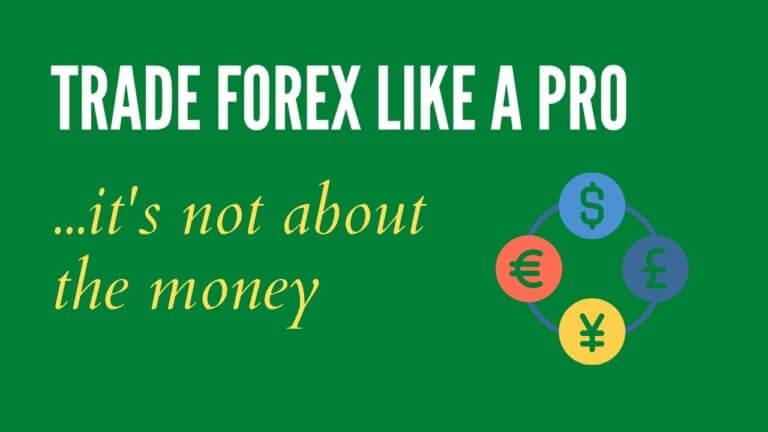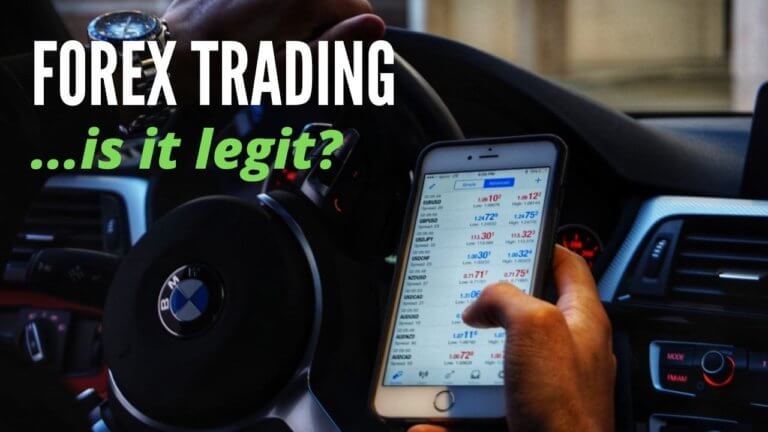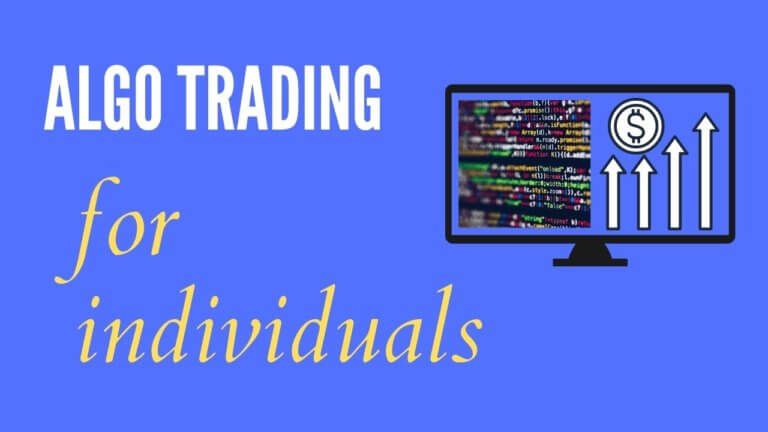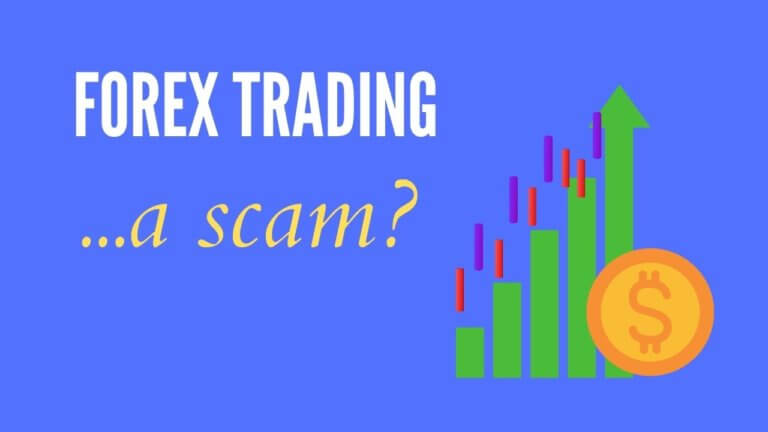Can You Trade Forex With 100 Dollars?
Forex trading is becoming a popular way to earn an extra income—and as more and more people get started with forex trading, a natural question is, “how much money do I need to start trading forex?”.
Please Note: Trading financial instruments, including forex, is risky—please read our risk disclaimer
Is as little as 100 dollars enough to start trading forex?
The short answer is: Yes
But the more complete answer is: It depends
In this article, we’ll look at a veteran forex trader’s advice on what it takes to get started with trading in the forex markets, even with as little as 100 dollars.
Forex trading with 100 dollars
Let’s look deeper into this by getting an expert’s perspective—Andrew Lockwood.
Andrew heads up Forex Signals, a popular forex trading community that provides education, mentorship, and advice to scores of budding traders.
Andrew is a veteran of the forex industry, with over 30 years of experience, having started in London’s bustling trading pits in the 1980s.
If anyone knows what it takes to get started in forex trading, Andrew does.
How much is enough to get started in trading is, in fact, one of the most commonly asked questions by beginner traders, according to Andrew.
He’s responded with a video on Forex Signals’ popular YouTube channel (see below), which we’ll discuss in the following.
The right approach to getting started with forex trading
Here’s what Andrew says matters most when you’re starting out as a forex trader:
- Know your trading objectives
- Understand the value of compounding returns
- Focus on percentage profits, not dollars
- Apply a risk-managed trading approach
- Avoid excessive leverage
- Build your skills first, and profits will follow
If you apply these principles to your trading journey, even 100 dollars is enough to start with, and you’ll be setting yourself up for success.
Let’s look at each of these a bit closer.
1. Trading objectives
It comes down to what your objectives are
If you’re considering getting started with forex trading, what do you hope to achieve? What are your objectives?
Some people are motivated by being able to give up their day job, while others are simply looking for a small supplementary income.
Retirees are often attracted to forex trading in the hope of improving their retirement lifestyle while doing something interesting at the same time.
Or perhaps it’s simply the ability to set your own trading schedule and work the hours that match your personal circumstances.
Whatever your reasons, putting your objectives into perspective will help you get started with the right mindset.
It can also help to firmly anchor your expectations at the outset—this can reduce regret, for instance, if your trading dreams don’t quite come true.
2. Compounding forex returns
Compound interest is the eighth wonder of the world!
Albert Einstein is often associated with this quote. But why should we pay attention to it?
The power of compound interest—or “interest on top of interest”—is easy to underestimate, but it is indeed powerful!
To illustrate, consider the parable about the little girl who approaches the richest person in her town and asks if she can get paid a nickel (5 cents) for doing some chores.
If she does a good job, all she asks is that she gets paid double—a dime (10 cents)—the following week for the same chores.
And so on, and so forth, earning 20 cents in week 3, 40 cents in week 4, etc. Doubling her payment each week for 20 weeks.
But starting off with a mere nickel doesn’t sound like much. Wouldn’t the little girl have been better off by asking for more, say $25 per week for 20 weeks?
That would amount to $500—a tidy amount of pocket money for a little girl.
But the little girl is smart, and she is much better off with her original request.
Why? The power of compound interest.
5 cents, doubled each week for 20 weeks, equates to a whopping $26,214.40 in week 20! And if you add up all of the payments over the 20 weeks, the total is $52,428.75—a whole lot better than $500!
It’s not surprising, then, that Einstein considered compound interest a “wonder”.
And it brings home the point that Andrew is trying to make—compounding numerous, small profits can yield surprisingly good results!
3. Percentage vs dollars
You should be looking at percentage gains and not dollars
With a small starting amount—whether 100 dollars or even 500 dollars—you realistically can’t expect to make large profits in dollar terms. But in percentage terms, you can.
And as these percentages accumulate, you can gradually build your profits up in dollar terms.
This ties in directly with the previous point about compound interest—focus on the accumulation of small profits (small in dollar terms but meaningful in percentage terms), and you can gradually build success.
Andrew suggests focusing on targeting 5% profits per month. This might be a far cry from the stellar profits that some people dream about when entering forex trading, but it’s a realistic target.
And even 5% per month—if you can maintain it—can accumulate at a healthy pace thanks to compound interest.
$100 compounded at 5% profit per month over 2 years, for instance, would grow to over $322 (ignoring taxes and trading costs).
This might not sound like much, but it represents a stellar growth rate (222% over two years or 79% per annum compounded each year over two years).
Once you know that you can do this with confidence, you can then scale your process—and profits—by using additional capital or (sensibly managed) leverage.
4. Trading risk management
Risk only a small percentage per trade
Andrew suggests risking no more than 1% of your capital per trade.
In fact, Andrew himself usually risks around 0.5% per trade, or even as little as 0.25% per trade, in his own trading.
Why so little?
By risking only a small amount per trade, you can then only ever lose a small amount. This is a simple, yet important, concept underpinning sound risk management.
And as long as you get more trades right than you get wrong on average, you’ll gradually accumulate profits.
Again, the principle of compound interest is at play here. Small profits can accumulate to large amounts over time.
The key is to apply a profit-making process over and over again—rinse and repeat—while never risking too much to cause any serious damage to your capital along the way.
5. Beware of excessive leverage
Using excessive leverage can be a killer!
Andrew’s statement may sound dramatic, but it’s true that leverage can be the undoing of many an unsuspecting trader.
Leverage magnifies both your gains and your losses—you should use it carefully.
Excessive leverage can lead to wild swings in profits, and as this article has been suggesting, consistent small profits are a better recipe for trading success than the swings & roundabouts caused by excessive leverage.
6. Skills first, then profits
If you can prove you can trade, there will be lots of people that will want you to trade their money
Financial markets can be volatile. They react minute-by-minute to news flows, economic data, and geopolitical tensions. They’re subject to the vagaries of supply and demand, and human emotions.
The only way that you can make consistent profits against this backdrop of potential mayhem in financial markets is through building solid skills.
And with solid skills, you can start to build the foundations of a solid trading track record.
With skills and a track record, plenty of opportunities will become available to you for making money through trading.
This is the point at which you can consider trading as a viable alternative to your day job—if that’s what you want to do—or as a rewarding pastime that’s profitable as well as enjoyable.
And you can start the whole journey with as little as 100 dollars.
In summary
Forex trading is an appealing way to make an extra income and its popularity has been growing steadily over recent years.
But a question that a lot of beginner traders grapple with is how much to start trading with—is 100 dollars enough?
The short answer is “yes”, but there’s more to this question that’s worth considering.
According to forex trading veteran—Andrew Lockwood of Forex Signals—the key is to start small and focus on accumulating consistent profits.
The power of compound interest will ensure that these profits will grow over time.
Manage your portfolio risk by never risking large amounts (no more than 1% of your capital per trade) and try to build your skills as a trader.
If you follow these principles, you’ll give yourself the best chance of success.
It’s a tried and tested approach that’s worked successfully for hundreds of aspiring traders, just like you.
And starting with as little as 100 dollars is fine—it’s all that you’ll need to start establishing your skills as a trader.
Once you can prove your skills, ample opportunities for trading on a larger scale will follow—whether for yourself or on behalf of others.
Getting your forex trading journey off to the right start, and with the right approach, could be the most important step that you take as a trader—your ultimate success or failure may depend on it.
Giri Rabindranath is a CFA Charterholder and holds a Master’s degree in Finance. He has over 25 years of professional experience in the financial industry. The views expressed in this article are solely for informational purposes and do not represent financial advice in any way whatsoever.
Risk Disclaimer: Trading CFDs, forex, and other financial instruments, especially if leveraged, is risky. It isn’t suitable for everyone and may result in loss, sometimes substantially more than the initial investment. Depending on the type of instrument, you may not own or have rights to the underlying assets. Past performance is no indication of future performance and tax laws are subject to individual circumstances and are also subject to change at any time. The information on this website is general in nature and doesn’t take into account your personal objectives, financial circumstances, or needs.
